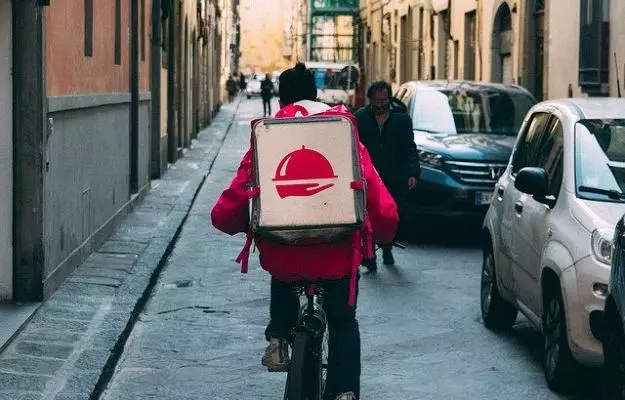The outbreak of the COVID-19 pandemic has caused a major disruption in the daily lives of people the world over. Nearly 9 lakh people are reported to have been infected by the coronavirus infection globally, while the disease has claimed over 53,000 lives globally as of 3 April, 2020, with majority of the cases emerging from Italy, Spain, France and the United States.
No disease outbreak in recent history has had such an effect on the global economy, as countries the world over have been forced to implement stringent measures to curb the spread of COVID-19. Human movement has been curtailed, public spaces including schools, government buildings, big business ordered shut while public gatherings have been banned, with citizens asked to practice social distancing, or according to the WHO’s recent terminology, physical distancing.
Even though India may not have seen the same amount of cases in comparison to Europe and other countries around the world, a majority of its 1.3-billion strong population is under the risk of contracting the illness through some form of human transmission. The last few days have seen the number of cases rise to over 2000.
Extraordinary restrictions have been put in place on people across various strata of society, although the operation and supply of essential services are being continued. In these trying times, however, one of the essentials for people to survive - food - has become a topic of intense debate with regards to packaged food available at hotels and restaurants, or available through delivery via mobile applications or the telephone.
Read more: Tips on maintaining hygiene and social distancing while shopping for essentials
- Risk of buying food during COVID-19 outbreak
- Tips for shopping at grocery stores
- The risk of surface transmission
- Should one eat at restaurants or order food during the COVID-19 crisis?
- Tips to order food safely during COVID-19 lockdown
Risk of buying food during COVID-19 outbreak
As India continues its 21-day lockdown which came into effect on March 25, the movement of people outside for various reasons has been restricted. Citizens have been asked to stay indoors most of the time, and only step out when necessary. Buying raw materials to prepare food at home or buying pre-cooked food from a restaurant are what people have been restricting their movements to.
Buying fresh meats and vegetables to cook at home do not come with a lot of issues as long as people take all necessary preventive measures while stepping out, wash raw food thoroughly, and finally cook them properly. Buying cooked meals from outside or having it delivered to your doorstep, however, comes with its own set of challenges.
The initial move to restrict movement of riders who perform door-to-door deliveries was eventually waived as several people require food to be delivered for various reasons. Hotels and restaurants that provide such services, as well as food delivery applications have been following a set of guidelines to ensure that the clients are kept safe from contracting an infection from human contact, and vice versa.
Both the delivery persons who are tasked with the job of delivering food to multiple locations in the city, as well as the customer who has ordered the food, remain at risk of contracting the infection.
Those who provide delivery services of food items are practising leaving the orders outside the door of the clients to avoid human contact. A food delivery person will reach your house and drop the order off in a carry bag at your doorstep to avoid the risk of infection or contamination.
Online food and grocery chains have also issued advisories to their clients to explain the precautions they are taking to ensure the food and items being prepared for delivery are being done in a sanitized environment, and following it up with a contactless delivery process.
Read more: How to eat health during a COVID-19 lockdown
Tips for shopping at grocery stores
Places that are open for people to visit and collect essential items and supplies from remain functional, but it is wise to follow all the safety instructions laid out by the government as well as the marketplace. It is better to be prepared for worse situations in these scenarios and following a few basic hygiene tips can go a long way:
- Use electronic modes of payment like E-wallets, rather than using cash or cards at the counters.
- Always carry an alcohol-based hand sanitizer with you and remember to clean your hands after having done your shopping.
- Avoid touching your face while visiting any of the shops, especially after touching the items lying on the aisles.
- Once you return home, remember to wash your hands thoroughly with soap and water.
Read more: How to protect yourself against COVID-19 infection
The risk of surface transmission
Despite following all the guidelines on safety and hygiene laid out by various government agencies with regards to eating at restaurants or ordering food from outside in the times of a global pandemic, there are some risks associated with the infection even after this.
According to a recent research published in the New England Journal of Medicine, transmission of the SARS-CoV-2 virus, responsible for the new coronavirus infection, isn’t restricted to human-to-human transmission. Research by scientists showed that the virus remains active on different surfaces for surprisingly long periods of time.
The SARS-CoV-2 virus remains active (read infectious) on cardboard for about 24 hours, while on surfaces like plastic and stainless steel, it remains active for as long as 2 to 3 days, making many surfaces risky to touch. Earlier, it was believed that if a person is infected, the tiny droplets released while speaking, coughing or sneezing onto another person, or touching an infected person and then touching your face with the contaminated hand were the primary reasons behind the transmission of the virus.
However, even the Food and Drug Administration (FDA) of the United States has found little evidence that could show that the virus could be transmitted from food packaging. Even if there is a chance of contracting the virus through such a surface, the chances are miniscule, according to them.
Should one eat at restaurants or order food during the COVID-19 crisis?
Official government guidelines have included sanitizing your own home, floors, door knobs and any other surfaces that are frequently used. Restaurants and food delivery applications have been hard at work in ensuring the highest quality of food is delivered while following the highest standards of safety, sanitation and hygiene, but one must minimize the chances of contracting the infection as much as possible. If you do show symptoms of COVID-19, it's best to call a doctor or emergency health services and consult them.
Tips to order food safely during COVID-19 lockdown
There are, of course, instances when one would have to resort to ordering food online or directly from a restaurant by calling in. Here are a few tips how one can ensure the best possible standards of hygiene and safety and maintained at these times:
- Order from restaurants and online platforms that assure a contactless delivery and are following the best practices.
- Instruct the restaurant and delivery staff properly about directions and how to get to your residence.
- Wash your hands thoroughly after collecting the food, disinfect the surfaces where you will place the items and recycle/dispose of the packaging immediately.
- Tip the delivery staff well. They are performing an essential duty at this time while putting their own lives at risk. Just ensure that you wash your hands after doing so if paying in cash.
Restaurants and food delivery companies are performing a service at a time when little else is being allowed to function during a lockdown. In such times, it is important for customers to also show their gratitude towards the people bringing food to their homes and appreciating the effort they are putting in.
It is important to maintain all the standards of safety and hygiene while handling food being delivered from outside, but minimizing the number of orders in order to maintain the least possible contact with the outside world also benefits you in the long run, with the hope of life returning to normal as early as possible.
Find Infectiologist in cities
Doctors for Is it safe to order food online during COVID-19?

Dr. Gatikrushna Karan
General Physician
6 Years of Experience

Dr. Ankit Hissaria
General Physician
8 Years of Experience

Dr. Bhushan Borde
General Physician
3 Years of Experience

Dr. Gurmeet Singh
General Physician
2 Years of Experience
Medicines / Products that contain Is it safe to order food online during COVID-19?
- Proctosedyl BD Cream - ₹108
- Anovate Cream - ₹140
- Pilo GO Cream - ₹80
- Covifor Injection - ₹3780
- Fabiflu 200 Mg Tablet - ₹1292
- Fabiflu 400 Tablet - ₹856
- Fabiflu (Favipiravir) 400 Mg Tablet - ₹1224
- Fabiflu (Favipiravir) 200 Mg Tablet - ₹1292
- Remdesivir Injection - ₹10500
- Molusafe Capsule - ₹457
- Movfor 200 Mg Capsule - ₹2490
- Molflu 200 Mg Capsule - ₹1400
- Molulife 200 Capsule - ₹1399
- Cipmolnu 200 Mg Capsule - ₹2000
- Molxvir 200 Mg Capsule - ₹1520
- Immunocin Alpha Plus 1.6mg Injection - ₹5998
- Alzumab Injection - ₹8229
- Imualfa 1.6mg Injection 1ml - ₹2628
- Molnutor 200 Mg Capsule - ₹2000
- Sotrovimab Injection - ₹165000
- Nirmatrelvir - ₹5000
- Molnupiravir 200 Mg Capsule - ₹1400
- Covihalt 200 Tablet - ₹465
- Ciplenza Tablet - ₹646
- Itolizumab Injection - ₹8220

















